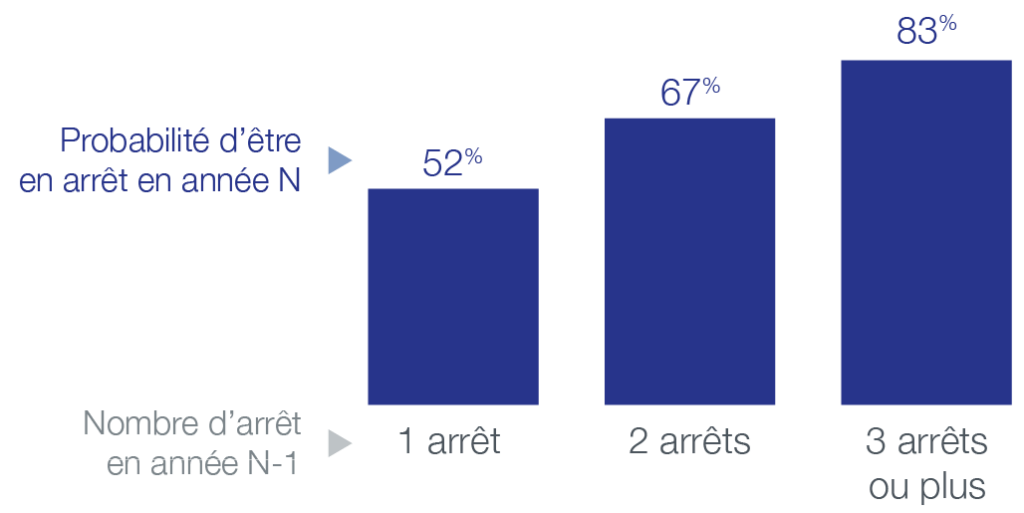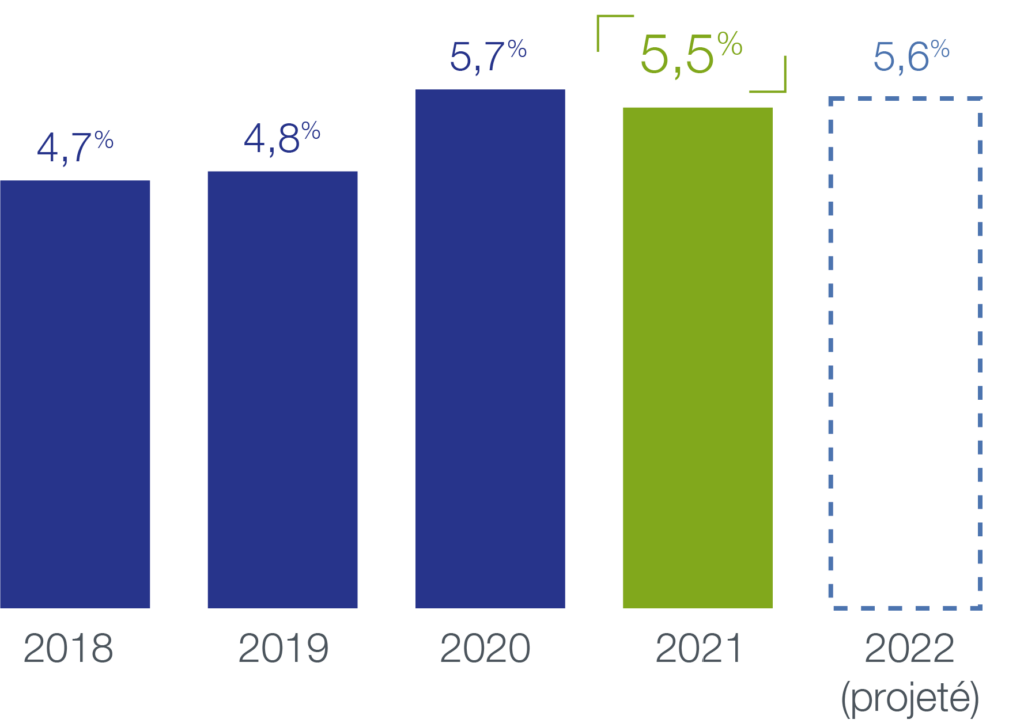Verlingue publishes its 1st Absenteeism Barometer
Presented in preview to our customers, during the client campus of June 2 and 16, 2022, the 1st Verlingue Absenteeism Barometer was broadcast today and presented to the media in insurance, economy and finance during a press conference.
Based on observed data* on its customer portfolio (282,000 policyholders) between 2018 and 2021. Key takeaways include:
- An increase in absenteeism: 5.5% in 2021 against 4.8% in 2019, and 5.6% projected for 2022
- The cost of salary maintenance: 3.3% of payroll
Relapse rate: the determinism of absenteeism past / 2021: absenteeism at the center of companies’ concerns - The annual absenteeism rate is expected to rise to 5.6% in 2022, compared to 5.5% in 2021, 5.7% in 2020 and 4.8% in 2019. The 5th Covid wave has resulted in a worsening of the rate observed in 2021. / The cost of salary maintenance in 2021 is on average €85 per day of absence and €3,293 per year and per absent employee. It is 27% higher than in 2018 (impact of long stoppages) and represents 3.3% of the payroll. Long stoppages, which represent 13% of stoppages, account for 69% of the total duration of absences in 2021 and have a direct impact on the cost of absenteeism for companies.
- Relapse rate: the determinism of past absenteeism. An employee who has already been absent last year is 2 times more likely to be absent this year. This observation is valid for both the pre-Covid and post-Covid periods. The risk increases if, last year, the number of stoppages were multiplied. / • Absenteeism increases with age: the severity of stoppages and the cost of maintaining wages increase with age.
- The duration of absence of + 55 years is doubled compared to -30 years, for an average cost multiplied by 3 (effect duration of absences and higher level of remuneration).
Disparities by sector of activity and region - The sectors most impacted in 2021 are health (7.7%), agri-food (7.1%) and trade (5.8%).
In addition, managers and supervisors are less absent (3.1%) than manual and nonmanual workers (7.1%).
Finally, regarding location, the South region and Hauts-de-France are the most exposed by absenteeism with respectively 6.7% and 6.2% while the national average is 5.5%.
Identify the key factors of absenteeism to improve the quality of life of employees and reduce the overall cost of absenteeism
Beyond its financial impact, the stakes for employers are human and operational.
The Verlingue barometer offers a quantified deciphering of the factors of absenteeism in a complex economic, social and societal context that is more difficult to understand (recruitment difficulties / career extension, announcement of pension reform, and financial impacts on companies’ pension programs).
Thanks to the data and analysis of Verlingue experts on pension risk, the Verlingue Absenteeism Barometer aims to better understand the structural changes in absenteeism and offers for the first time a methodology that allows for a structured approach to:
- Prevent to reduce absenteeism,
- Promote the return to employment,
- Structure health and prevention policies.
And this, in order to allow companies to gain in productivity, improve the quality of life of their employees and reduce the overall cost of absenteeism.
*Methodology: The barometer is based on a quantitative analysis of absenteeism in France observed on the Verlingue portfolio between 2018 and 2021, fed by data from customers’ nominative social declarations Health and Provident expenses (in compliance with GDPR standards) enriched by Opendata sources (Health, economic and climate).
For each reference year, analyses are carried out by observation over the calendar year (01.01 to 31.12). The study covers a portfolio of 282,000 policyholders (46% women, 38.9 years of average age) representing 483 companies present over the entire period analyzed. The indices observed in base 100 make it possible to retain a reference period, to calculate and compare easily the evolution of several indicators between two periods given on a stable basis in nature and composition.
Press Contacts
Gwenola Jutel-Iehl : gwenola.jutel-iehl@verlingue.fr +33 6 43 44 96 58


